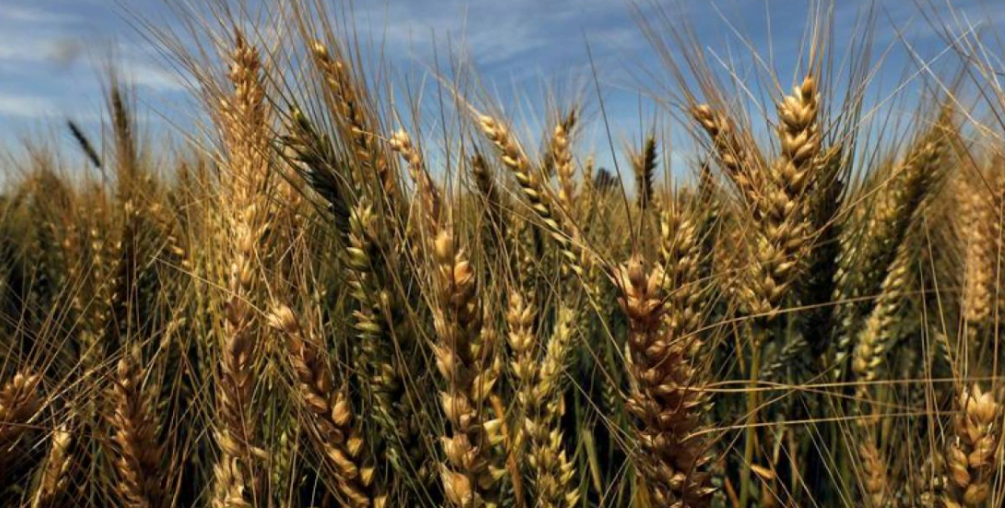Rain-fed wheat research in Plateau has recorded success, thereby raising hope for a breakthrough in the country’s attempt to produce the crop during both wet and dry seasons and close the huge domestic demand gap.
In an attempt to turn around the fortune of wheat cultivation in the country, several initiatives have been tried. And the central factor in this is the quest to halt the annual $2 billion wheat import into the country.
The current wheat situation in Nigeria reveals that the nation spends about $2 billion annually on importing over 5 million tons of wheat to meet local demand, thereby making it one of the highest food import bills.
In order to boost capacity toward meeting local demand, for the first time in the history of Nigeria, wheat was cultivated under rain-fed conditions on a large scale, and the expected outcome of the initiative is to add about 2,000 tons to the national seed stock and potentially increase the country’s wheat output by 750,000 tons annually.
The first ever rain-fed commercial wheat cultivation in Nigeria was then flagged off in 2021 at the Wheat Seed Multiplication Farm in Kwall, Bassa Local Government Area of Plateau State.
Plateau is known for its favourable climatic conditions for agriculture as well as good soil for plants; wheat inclusive. And for the rainfed wheat cultivation, only three states of the federation have been certified conducive for wheat rainfed condition: Plateau, Cross River and Taraba states.
Therefore, to boost wheat cultivation in the country, maximise the rainfed system and advance it, and meet the target of halting the $2 billion annual importation, Plateau has become a critical state in the formation and consideration.
Last month, the Lake Chad Research Institute’s 1st Rainfed Wheat National Farmers Field Day at the National Root Crops Research Institute in Kuru near Jos, the state capital, demonstrated the success of the project to farmers.
Speaking at the event, the Minister of Agriculture and Food Security, Senator Abubakar Kyari, said the event is verifiable evidence that wheat can be grown under rainfed conditions.
Represented by the Desk Officer, Wheat Value Chain in the Federal Ministry of Agriculture, Nephtali David Tella, the minister said wheat in Nigeria used to be grown under irrigated conditions from time immemorial, but that today it can be grown under rain-fed conditions.
“This is a beautiful development and a breakthrough, and it is equally great news to policymakers in Plateau State, Cross River and Taraba State where it is possible to grow wheat under the rainfed condition.
“They can leverage on this opportunity to boost wheat production by going into it. And the advantage of growing wheat under rainfed condition is that the cost of production will be significantly reduced. Labour charges and the cost of buying fuel will be reduced, and this will increase the profit margin of the farmer,” he said.
Senator Kyari described as unacceptable the $2 billion annual wheat importation to the country. He said the rain-fed wheat production initiative will significantly reduce the cost of production of wheat, unlike when it was only planted in the dry season with irrigation system.
In his remarks, the Director/CEL of Lake Chad Research Institute, Prof. Baba Gana Kabir, said the institute rotates the event across all the wheat producing states of the country, but that this particular event is special because it is the first time they are coming together for a rain-fed wheat farmers’ field day.
“Plateau State was chosen as the venue of the event because of its special natural endowment, a favourable climatic condition that allows cultivation of wide range of crops known for tropical, subtropical and temperate climates.
“In addition, the good people of the Plateau are known for their exceptional farming prowess that crops grown here on the Plateau are consumed all over the country,” he said.
Undoubtedly therefore, these events have instilled the cultivation of rain-fed wheat in Plateau State, particularly as the state is an agrarian one and has good climatic condition for growing varied types of crops/grains, including rare ones. It has also been certified for healthy growing of wheat, including rainfed wheat cultivation.
So, as all these are taking place in Plateau State, the wheat farmers in the state are not only basking in their effect and aftermath, but also being motivated into rainfed wheat cultivation as well.
And for about two years now, many of the farmers have been learning the art of rainfed wheat cultivation and are gradually launching into it.
The Chairman of Wheat Farmers Association of Nigeria, Plateau State Chapter, Binkur L. Binkur, told Daily Trust that rain-fed wheat farming is more easily maintained than that of the dry season.
He noted that the initial thing in cultivating wheat is to get the land that is well drained as the crop does not require a waterlogged area.
He said the farming often commenced around August, when the rain can support its germination till it is harvested in October/November.
He said it is easy to farm and maintain, and that the cost implication is less, so long as the proper minimal weeding is done and herbicide applied.
Binkur said there is also the need to apply fertiliser (twice if the land/soil is too poor and once if it is rich).
He added that if someone for instance is farming wheat in Shendam, Mabudi, Wase, Dengi, and similar places in the state, there is no need for much fertilizer application because of the richness of the land.
But if one is farming it in Jos East, Heipang, Barkin Ladi, etc, much fertiliser application is required because land in those areas is very poor in terms of nutrients.
He said Plateau has a comparative advantage in rain-fed wheat cultivation because of the weather, and that its land is such that whenever it rains it quickly dries off and is not waterlogged. In other places, rain water doesn’t easily dry off or they are swampy. Wheat cultivation, according to him, needs an area that is well-drained.
On her part, another wheat farmer, Ene Ameh, said the rain-fed wheat demonstration was very encouraging and that she intends to commence the rain-fed farming next year as she has been doing the dry season farming all along.
She said she hoped the rainfed farming would reduce the cost of production in terms of the purchase of fuel to pump water to the farm as in the case of irrigation farming.
Ameh said she is already prepared for the rainfed cultivation, as the demonstration programmes showed that the rainfed seed is good. So the wheat production in the state is becoming something profitable to venture into.

 Join Daily Trust WhatsApp Community For Quick Access To News and Happenings Around You.
Join Daily Trust WhatsApp Community For Quick Access To News and Happenings Around You.

